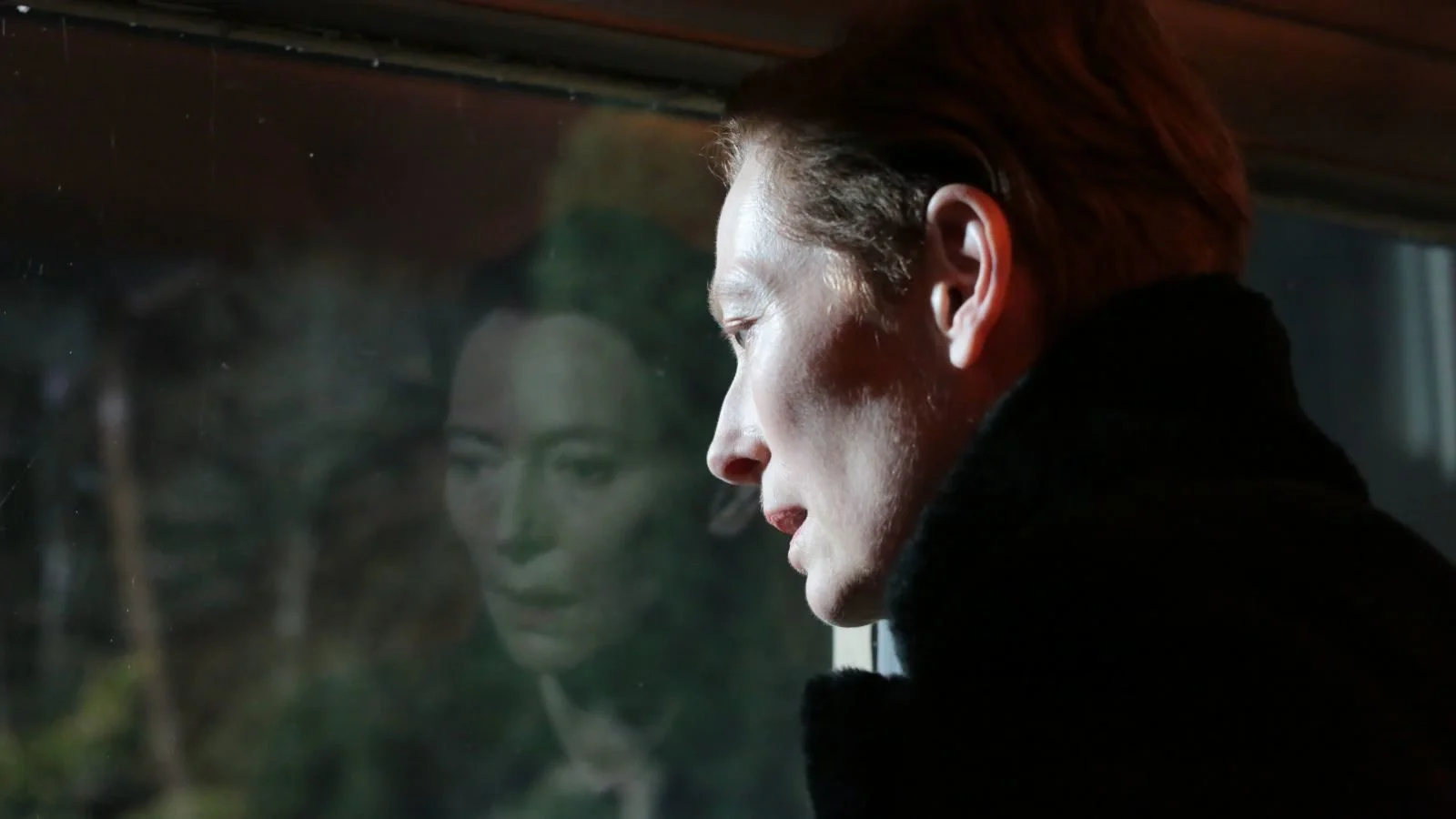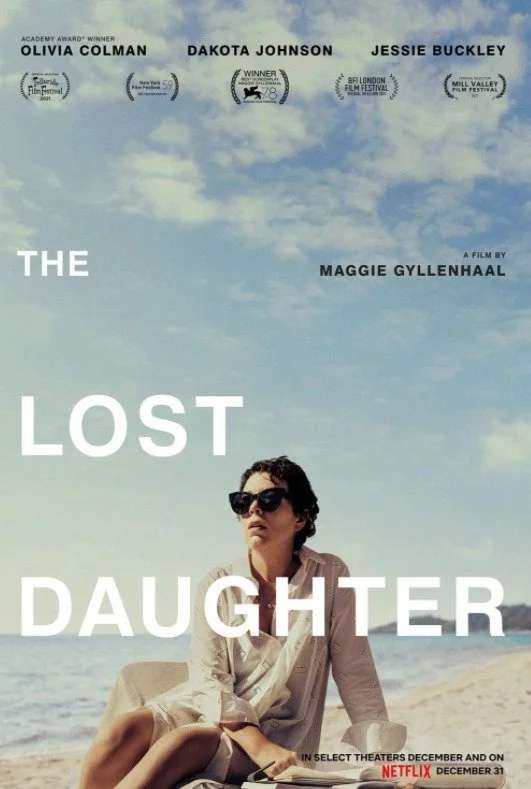The Eternal Daughter Review
7/10
I remember finding out about Joanna Hogg’s work when I saw her film Archipelago in London when it came out. Her films have a particular spareness to them that is divisive. I can understand why some would find her films too slow and uneventful. Their pacing can come across as glacial if you are more used to fast paced narratives. What makes them effective as stories is not the in your face drama that other films employ. The emotional turmoil in her work bubbles beneath the surface, threatening to unleash itself throughout the film. You have to pay attention to spot the growing fissures that threaten to swallow the characters whole.
I must admit, I’m not a big fan of her films overall. They are technically wonderful, but I find them difficult to engage with. The Eternal Daughter is similar in that respect. I loved the ideas and themes it explored. The film is rich in details and emotional nuance. When those elements are explored, the film soars and captivates. In between those moments is where I start to struggle with it a bit. Visually, it is a gorgeous gothic feast for the eyes. I can tell it was shot on film. The hotel in the film is simultaneously eerie and beautiful to behold. Exactly the kind of place I can see myself staying.
The two main characters in the film are Julie (Tilda Swinton) and her elderly mother Rosalind (also Tilda Swinton.) Julie is a filmmaker who is bringing her mother to an old hotel to reconnect and gain insight into a script she is writing about their relationship. This aspect of the story ties into the world of Hogg’s previous films The Souvenir Part 1 and 2. In those films, Honor Swinton Byrne, Tilda Swinton’s real life daughter, also plays a character named Julie who is a filmmaker. So, it is fair to assume that Julie in Eternal Daughter is either the same character, or they just exist in the same film universe. Like an artsy MCU.
It is clear when they arrive at the hotel that all is not well. Nobody else appears to be staying there and the receptionist (Carly-Sophia Davies) is standoffish and befuddled by Julie. This is where the film stumbles for me. It tries to establish an ominous tone and mystery by setting up what is going on in the hotel between Julie and her mother. The problem is it telegraphs everything too far in advance. Less than 20 minutes into the film I had already guessed what the reveal at the end would be.
That brings up an interesting question, how much does predicting a story’s outcome take away from the overall film? Should it keep you guessing throughout and retain a consistent sense of mystery? I think it depends on the film. In this case, I found it detracted from my experience because Eternal Daughter goes out of its way to try and mislead you and drop breadcrumbs. Well, it actually drops entire loaves of bread and decorates the path with neon signs pointing to the final destination. Thankfully, the film does not lean on the ending too much. The build up to the final moments is still interesting.
Julie feels guilty about trying to write this film about her mother. She feels it is wrong for her to take on this task without really knowing Rosalind. There are multiple times dotted throughout the film where Julie discovers details about her mother’s past and her ties to the hotel that she had no idea about before. She is constantly anxious about making sure her mom has a good time and opens up to her. She tries to isolate herself to work on the script but finds it impossible to get started. She sits in a spare room and just stares at the screen.
Tilda Swinton is brilliant in the film. She has been one of my favorite actresses for years. She can morph into these characters in a way that nobody else can. It is extraordinary to see her play Julie and Rosalind. Both characters sound similar, yet they both feel like completely different people. In part due to the old age makeup on Rosaland, but also the mannerisms she infuses into these people set them apart and bring them to life. It is a tad surreal to see Swinton acting opposite herself.
Eternal Daughter has been advertised as a gothic horror film, and that is somewhat accurate. There are traditional creepy moments interspersed in the film. Julie is kept awake by ominous noises coming from the floor above. She keeps staring at the door the noises are coming from but can’t bring herself to open it. During her writing sessions, she notices the door to the room is mysteriously open. These horror inspired moments are effective in the sense that they function to create a haunting atmosphere. However, they have been done so many times in countless other creepy films that their place here is appropriate but does not stand out.
So, if you go into this film expecting a typical scary ghost film, then you are likely to be let down. Some ghosts wander the halls of the hotel, yet their presence is not a threat and is more symbolic than dread inducing. There is no obnoxious jump scares to make you throw your popcorn in the air. What the film does excel at is the dynamic between Julie and Rosalind. They are cordial with each other, yet there is an awkwardness there too. There is a distance between them that Julie is trying to cross. Rosalind can’t stand it when her daughter fusses over her and insists that she is enjoying herself, despite the difficult memories this place conjures for her.
Much of the film involves repetition and routine. Julie and her mother have the same meals together, and share strained conversations, Julie wanders the hotel halls, fixates on the irritating noise from the room above, makes phone calls to the same person outside, etc. This loop of activity turns Julie into a kind of spirit herself. She haunts the grounds of the hotel, looking for a connection with her mother and trying to finish her work. This is where the disconnect comes into play that I have felt with some of Hogg’s other films. The feeling of sparse monotony can be effective to convey a character’s repressed emotions. Other times, it can be glacial to sit through. In the case of Eternal Daughter, it is a mix of both.
This film is like a stunning painting at an art gallery. One that you admire from afar, but don’t connect with beyond that. Joanna Hogg is a unique and admirable filmmaker. Even though I’m not enraptured by her work, I’m glad we have directors like her with a distinct vision. Many will engage with her minimalist approach to storytelling.









